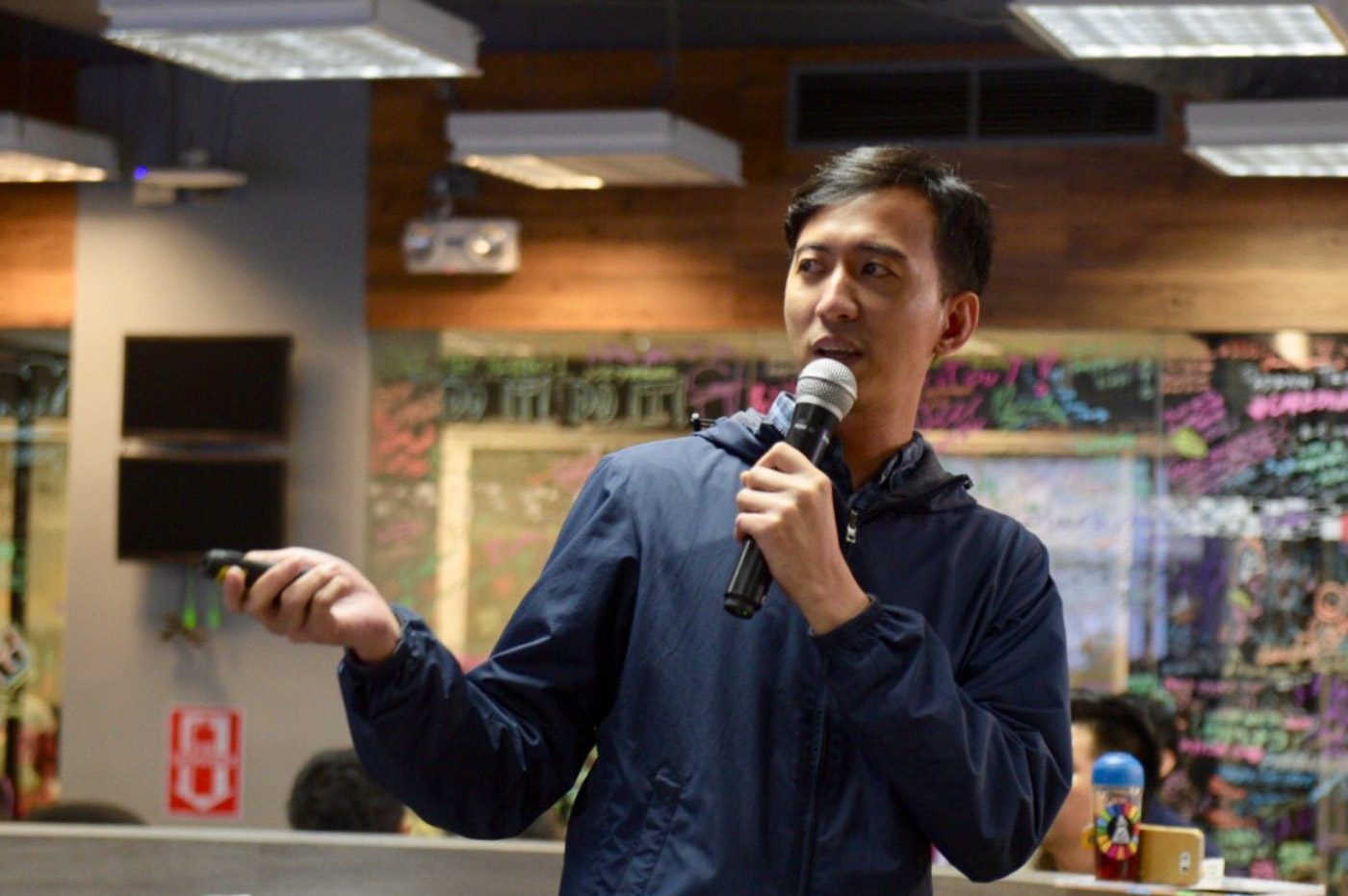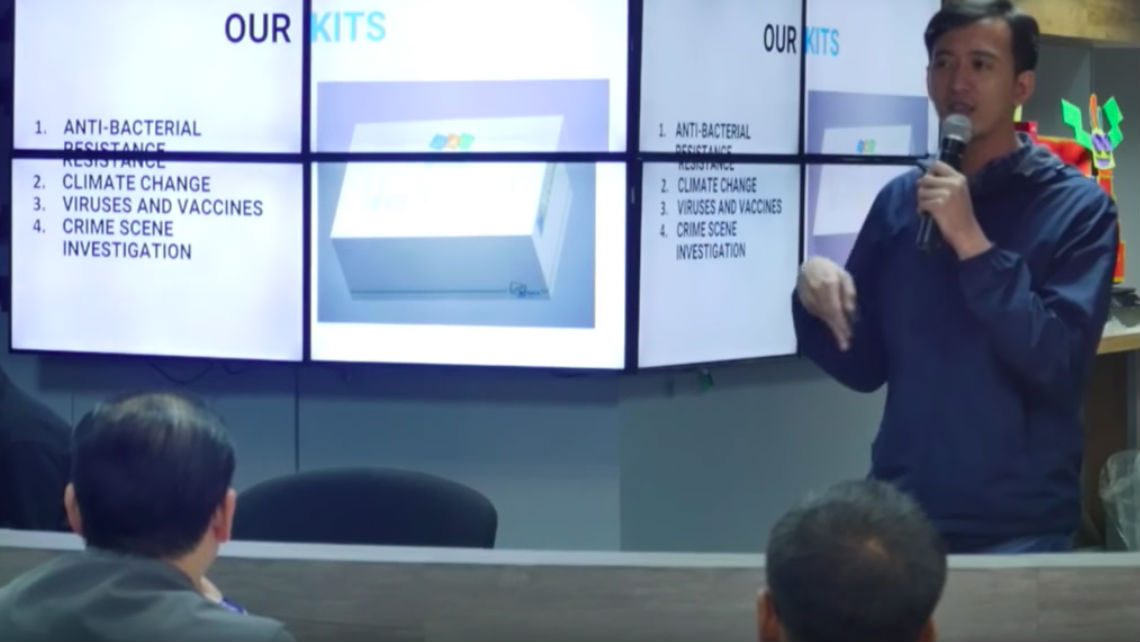SUMMARY
This is AI generated summarization, which may have errors. For context, always refer to the full article.

#HackSociety winner BTBox (Biotech in a Box) aims to stir the passion of young Filipinos for science. For them, that can start in the high school laboratory.
The more students are exposed to an environment where they can see, touch, and feel science in the form of basic experiments, the team believes, the higher the chances that these students will eventually pursue a career in science. (READ: #HackSociety 2018: Build Tomorrow)
The team is looking to produce and sell the most affordable but socially impactful laboratory kits in the Philippines. (READ: Biotech-in-a-Box: Bridging the gap in STEM education using socially relevant biotech kits)
With these kits, the team hopes to be able to “bridge the gap in STEM (Science, Technology, Engineering, Mathematics) education” with the cost-effective kits.
The gap, in this instance, is still considerable as only 3 out of 10 high schools have labs. They say it’s a deficit that currently exists because schools are still adjusting to the extended K-to-12 system and STEM programs.
The lab kits, to be priced at P5,000 each, will be covering several interest areas: anti-bacterial resistance, climate change, viruses and vaccines, and crime scene investigation. The team chose these interest areas as they are very relevant issues right now, with misinformation regarding vaccines, climate change, and resistance to antibiotics routinely finding its way online. The kit is also 90% cheaper than the competition, according to the team.
Kenneth Kim, one of the 4 members of this UP Diliman team, says they don’t just want to fill in the gaps, but they also “want to make the experience immersive” using a mix of 3D visuals, lab experiments and modules. He wants students to understand deeply the purpose of an experiment and what they are doing. The other members are King Karl Seroje, Jess Vilvestre, and Shelley Medina.
The kits are also designed to be very portable, so schools with a small space will still be able to put them to good use. Ultimately, what they want is to help better educate Filipinos, not only with the kits, but with workshops and training for teachers across the country.
After they won, we caught up with the team, represented here by Kenneth Kim, for a quick Q&A. Read it below.
On a personal level, what made the lack of sufficient STEM education an issue that’s close to your heart? What were your experiences that made you decide that this is a problem worth addressing, and is worth the effort? How did this idea come to be?
I am an aspiring scientist. However, during my time we really didn’t have an access to a laboratory in our school, and it became so difficult for me to understand a lot of things in science, especially those which are abstract and not visible to the naked eye such as molecular biology.
I’ve only tried doing some of the experiments when I was already working in a research lab and I figured that it wasn’t really that hard at all contrary to the feeling I got when I was just seeing them in textbooks (which, by the way, would mostly be Western in context).
But most importantly, in my course of being a scientist I noticed that science communication is really important because even though we develop vaccines and antibiotics if we don’t communicate our science to the people all efforts will be put to waste.
Thus I decided that maybe it’s time to incorporate socially relevant issues into science subjects. This way, we get to inspire young scientist who are grounded in the social realities of our country and hopefully someday some of them will be “scientist ng bayan” but if not, then at the very least we educate them to be better citizens of this country.
Do you feel like the Philippines has been more attuned to the arts rather than the sciences, and that there is an imbalance that must be addressed?
In the dichotomy of arts and sciences, I believe that we both need them. It is rather not the arts nor sciences that have a big imbalance but how we produce graduates. We should produce graduates be it in arts or sciences that are well grounded in social issues. I believe that the academic path will not ultimately define the person but rather what he/she chooses to do with it.
If it were up to you, how do you envision the Philippines’ STEM community – from the academe to the body of professionals to the government – to where you think it must be? How do we guide the country to become more STEM-friendly?
I envision the Philippines becoming a science nation. Countries such as Singapore and South Korea have heavily invested in research as a means to forward their economy and I personally believe that we should also do the same.

The huge work right now is – how do we retain our future scientists to work for the Philippines? This work cannot be done by the private sector alone. The government plays a huge role in making the scientific community sustainable. One of the ways that we can do is through public-private partnerships.
What’s your ultimate vision for BTBOX? When it succeeds, in what ways do you see it making a positive impact in society?
My ultimate vision for BTBox is to see more people that are educated on how science can address real-life problems that we face in our country, and more than that, citizens who are knowledgable about social issues.
And how was your #HackSociety experience? What are your takeaways from competing in the ideathon?
It helped us a lot in refining our ideas, and the mentoring also allowed us to present our idea clearly. One of the biggest challenges that we faced was the fear and intimidation that our idea might not go through because the start-up scene is very much dominated by apps and digital media.
To prepare, we went through it step by step during the workshop and also consulted with the mentors prior to the presentation. Also, a lot of brainstorming!
Members of the BTBox team mostly come from STEM backgrounds and hail from UP Diliman. Kim is a research professional at the Marine Molecular Ecology and Evolution Laboratory and a marine biology student from the Marine Science Institute. A second team member, King Karl Seroje is a Physics graduate and has worked as a researcher at the Physical Oceanography Laboratory in UP Diliman’s Marine Science Institute. Jessica Vilvestre is a chemical engineering student. Another team member, Shelley Medina, is a licensed social worker with a Bachelor’s Degree in Social Work. – Rappler.com
Co-organized by Rappler and the United Nations Development Programme (UNDP) in the Philippines, #HackSociety is the Philippine counterpart of Youth Co:Lab, a program to promote innovation and social enterprise among the youth in the Asia-Pacific, which is co-led at the regional level by the UNDP and Citi Foundation.
Rappler and the UNDP introduced #HackSociety for the first time in 2016, as a workshop segment in the Manila Social Good Summit. To inquire about #HackSociety, email socialgood@rappler.com.
Add a comment
How does this make you feel?
There are no comments yet. Add your comment to start the conversation.